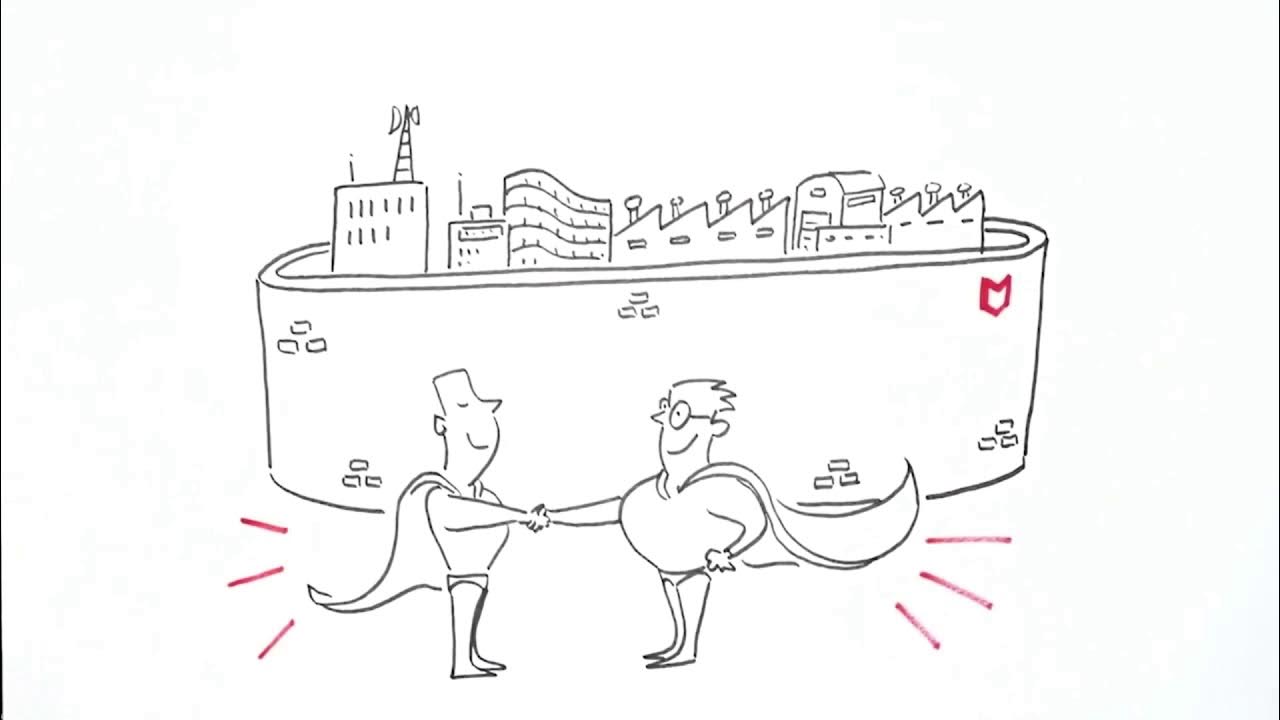Security Considerations - CompTIA Security+ SY0-701 - 5.1
Summary
TLDRIT security professionals must be aware of regulations like Sarbanes-Oxley (SOX) and HIPAA, which govern data protection and retention. Legal requirements may include formal processes for reporting illegal activities, responding to legal holds, and disclosing security breaches. Cloud computing adds complexity due to global data storage laws. Security needs vary across industries, from air-gapped systems in utilities to encrypted data in healthcare. Geographic scope, from local to global, also affects data protection strategies, requiring tailored approaches to ensure confidentiality and compliance with diverse regulations.
Takeaways
- 🔍 IT security professionals must be aware of regulations related to the organization they work for and the type of data they collect.
- 📊 Regulations may include not just application data but also log files created by those applications.
- 📅 Certain information might need to be retained for extended periods; for example, email storage mandates.
- 💼 Sarbanes-Oxley (SOX) is a key regulation for financial data protection within organizations.
- 🏥 HIPAA ensures the protection of healthcare information, covering both data storage and transfer.
- ⚖️ IT security teams must follow legal requirements and formal processes for reporting illegal activities and responding to legal holds.
- 🔐 Many jurisdictions mandate the disclosure of security breaches within specific time frames.
- 🌍 Cloud computing introduces legal challenges related to the geographic location of data storage.
- 🏭 Different industries have varied security requirements; for instance, public utilities may have stricter access controls compared to medical environments.
- 📈 Organizations of different scopes (local, national, global) face unique security challenges and regulatory requirements.
Q & A
Why do IT security professionals need to be aware of regulations associated with their organization?
-IT security professionals need to be aware of regulations to ensure compliance with legal requirements and to properly manage the data they collect, including application data and log files.
What is the Sarbanes-Oxley Act, and why is it important for organizations?
-The Sarbanes-Oxley Act, abbreviated as SOX, is the Public Company Accounting Reform and Investor Protection Act of 2002. It focuses on the financial aspects of an organization and ensures that financial data is protected and available to the appropriate individuals.
What is HIPAA, and what does it cover?
-HIPAA, the Health Insurance Portability and Accountability Act, mandates the protection of healthcare information. It covers data storage, transfer, and disclosure to third parties to ensure the privacy and security of healthcare information.
What responsibilities do IT security teams have regarding legal holds?
-IT security teams are responsible for ensuring that data will be available for future legal proceedings by adhering to legal holds, which require the retention and protection of relevant data.
How do regulations impact the disclosure of security breaches?
-Regulations mandate that organizations disclose security breaches within an appropriate time frame. The specific rules for disclosure vary depending on the jurisdiction, requiring organizations to follow local legal requirements.
What challenges does cloud computing create from a legal perspective?
-Cloud computing allows data to be stored anywhere in the world, but legal guidelines may require that data collected from citizens remain within the country's borders. This creates challenges in complying with these regulations while leveraging cloud technology.
How do security considerations differ between industries such as public utilities and healthcare?
-Public utilities often have strict access requirements and may use air-gapped networks, while healthcare requires extensive data encryption and protection technologies to ensure that medical professionals can access private medical information securely.
How does the scope of an organization impact its security considerations?
-Local or regional organizations focus on managing data within a specific area, while national organizations deal with broader issues such as national defense and inter-state communication, necessitating advanced encryption and data protection technologies. Global companies face additional complexity due to varying international data protection laws.
Why is it important for IT security professionals to have formal processes for reporting illegal activities?
-Having formal processes for reporting illegal activities ensures that IT security teams can respond appropriately to incidents and comply with legal requirements, maintaining the integrity and security of the organization's data.
What are the key legal requirements IT security teams must be aware of when working in different geographic areas?
-IT security teams must be aware of local, national, and international laws regarding data protection, breach disclosure, and data storage. These requirements vary by geography, so it is essential to follow the legal mandates specific to each area to ensure compliance.
Outlines

This section is available to paid users only. Please upgrade to access this part.
Upgrade NowMindmap

This section is available to paid users only. Please upgrade to access this part.
Upgrade NowKeywords

This section is available to paid users only. Please upgrade to access this part.
Upgrade NowHighlights

This section is available to paid users only. Please upgrade to access this part.
Upgrade NowTranscripts

This section is available to paid users only. Please upgrade to access this part.
Upgrade Now5.0 / 5 (0 votes)





